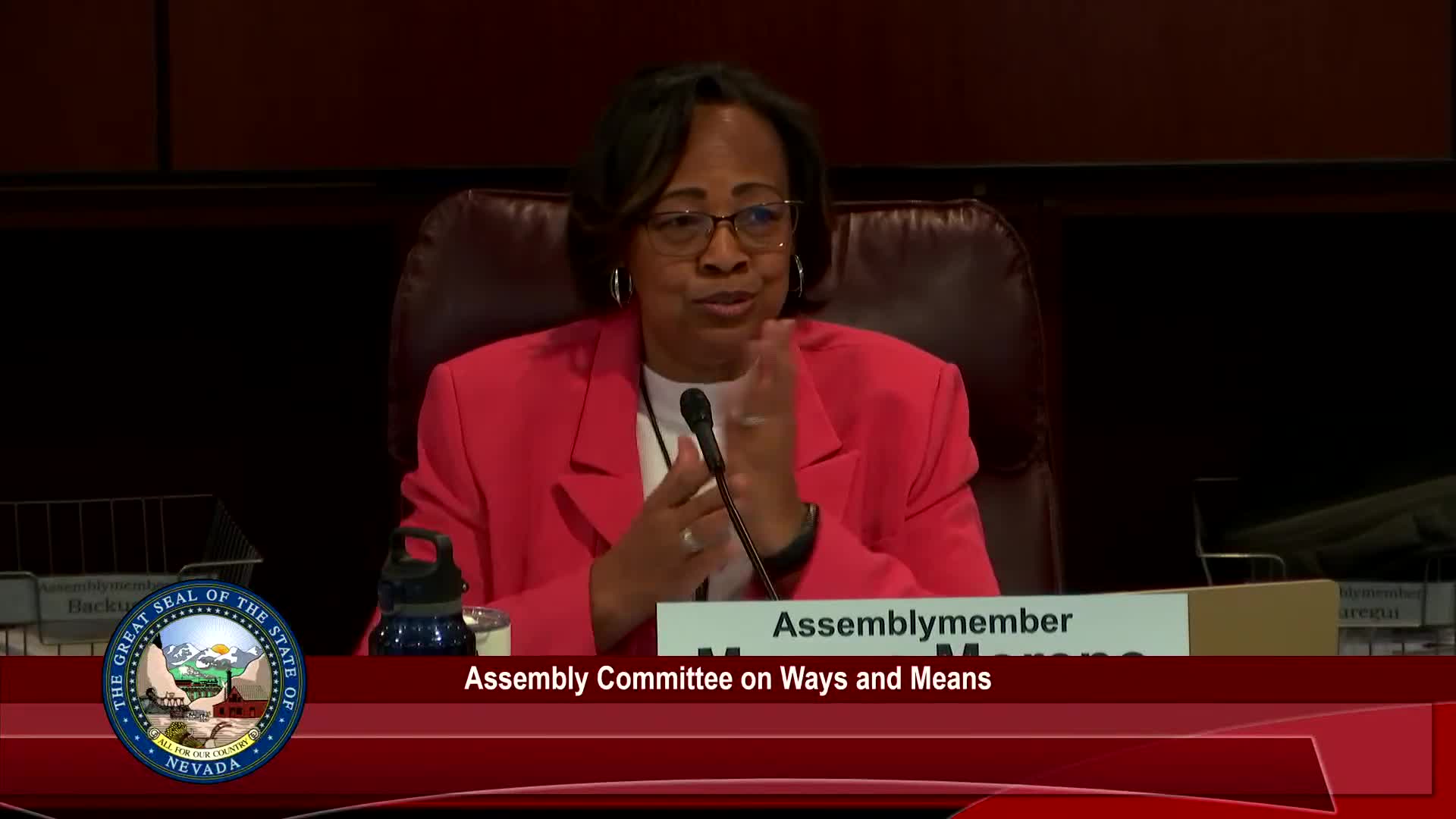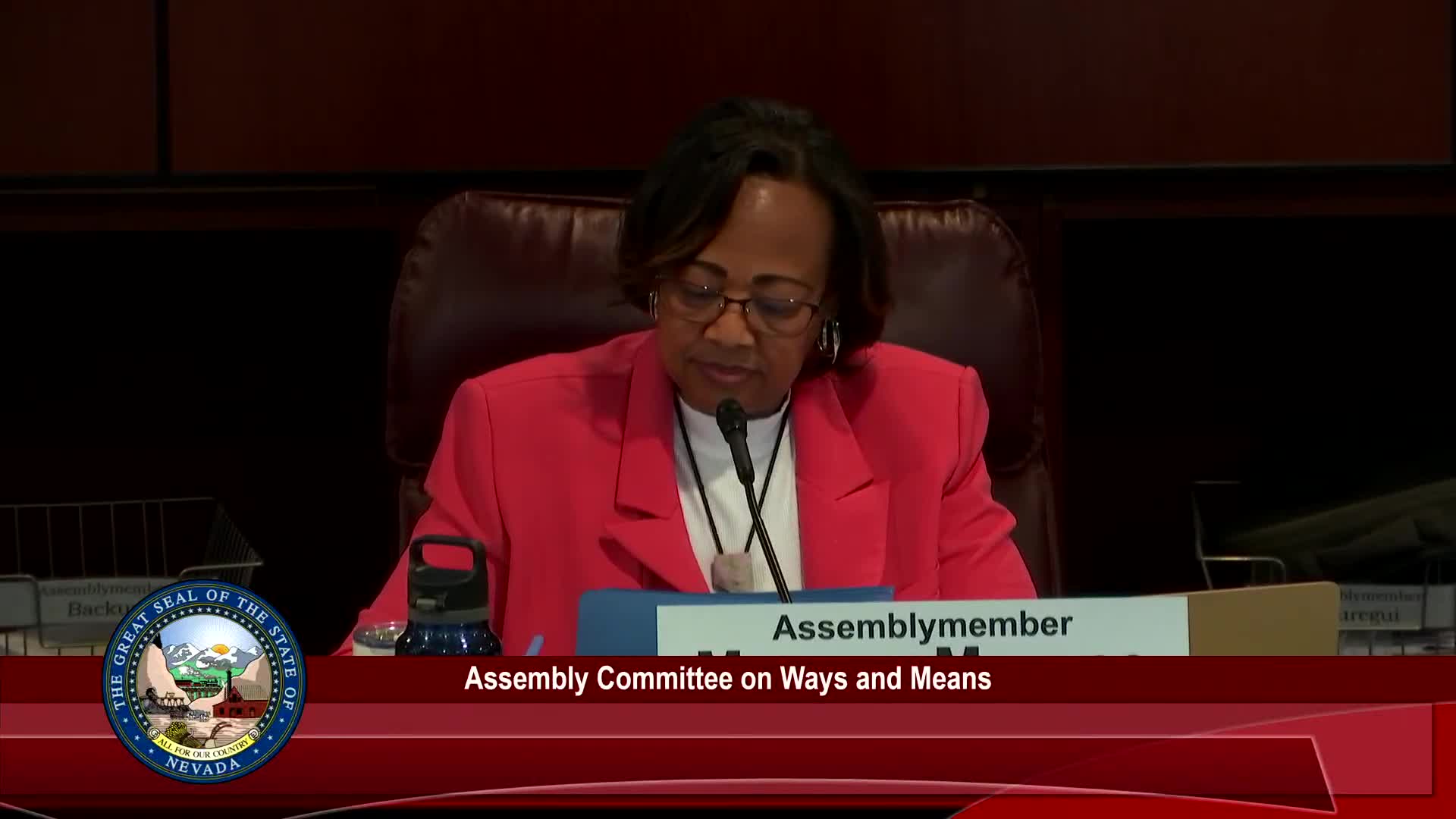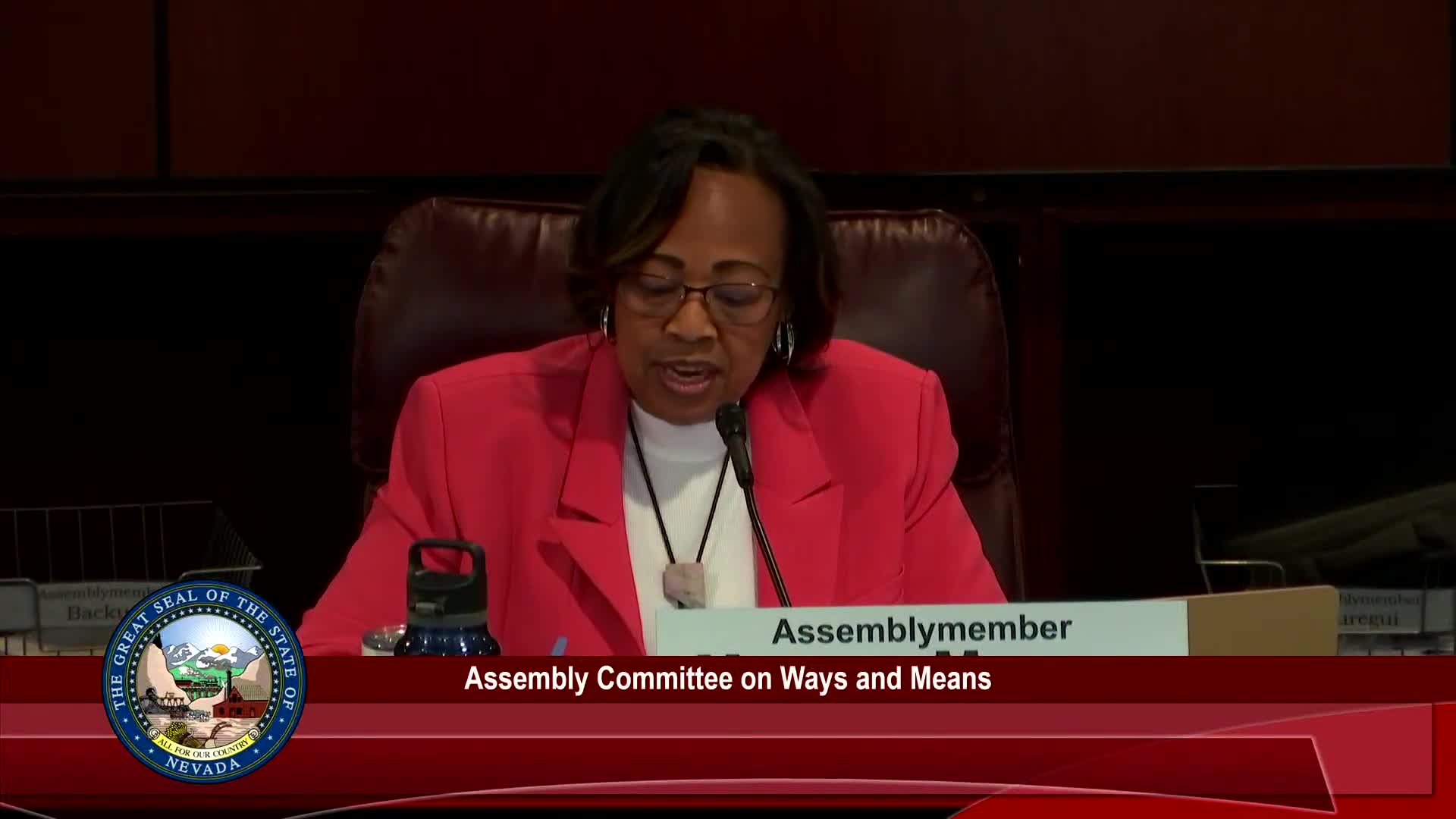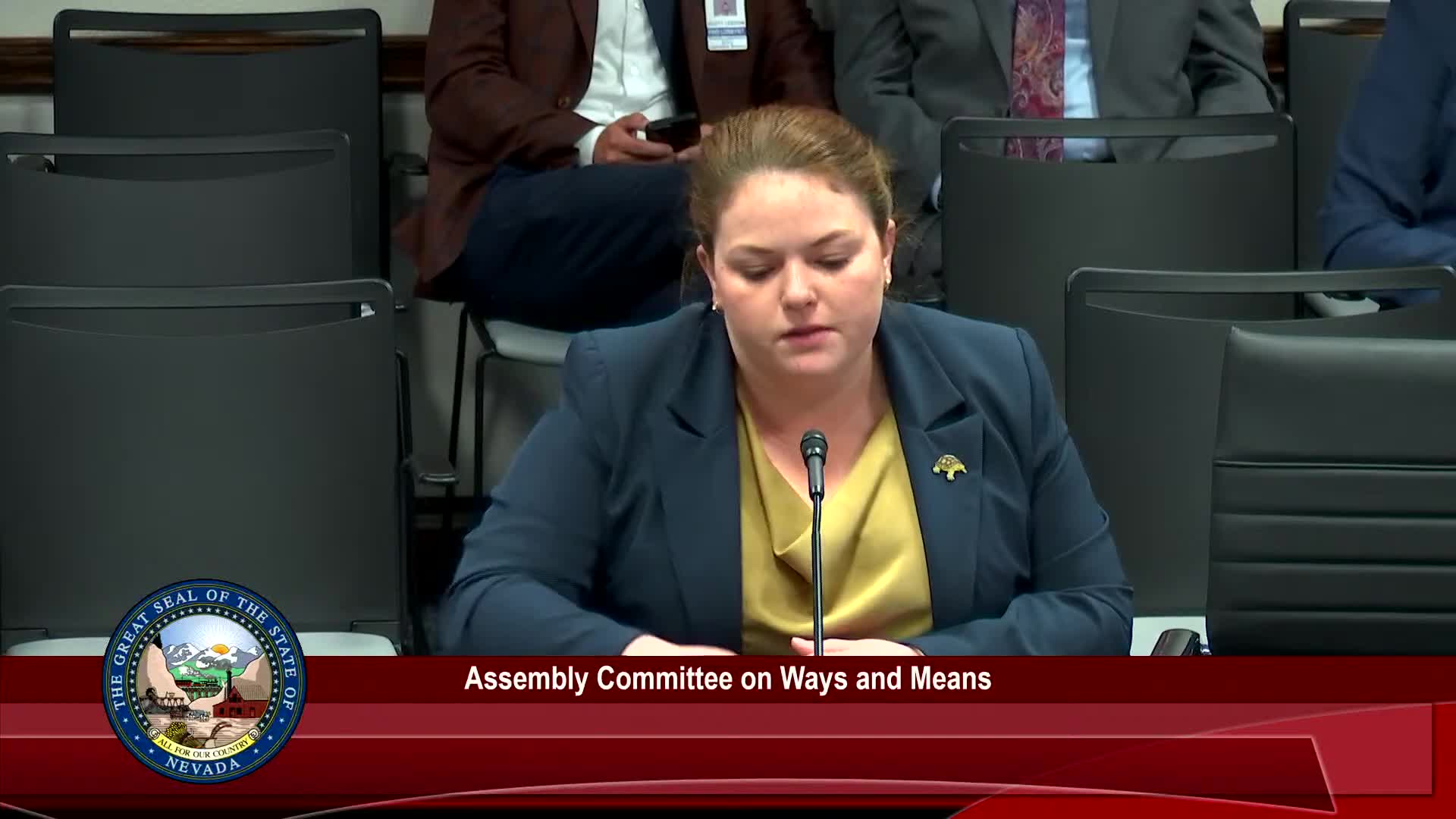Article not found
This article is no longer available. But don't worry—we've gathered other articles that discuss the same topic.

Legislative panel hears $500,000 request for Nevada Center for Civic Engagement to expand civics programs

Nevada committee hears bill to restore teacher reimbursement grants worth up to $500 per educator

Bill would revise Nevada financial‑literacy diploma seal, add standards review and one‑time testing funds

UNLV dental school seeks $1.34M to reestablish Nevada’s accredited cleft and craniofacial team

Bill would fund Southern Nevada pilot to align regional infrastructure and economic development planning

Committee hears bill allowing natural‑gas utilities to seek alternative rate plans; PUCN notes modest implementation cost

Lawmakers weigh sweeping health‑care bill: freestanding ER oversight, noncompete ban and Medicaid fraud authority among provisions

